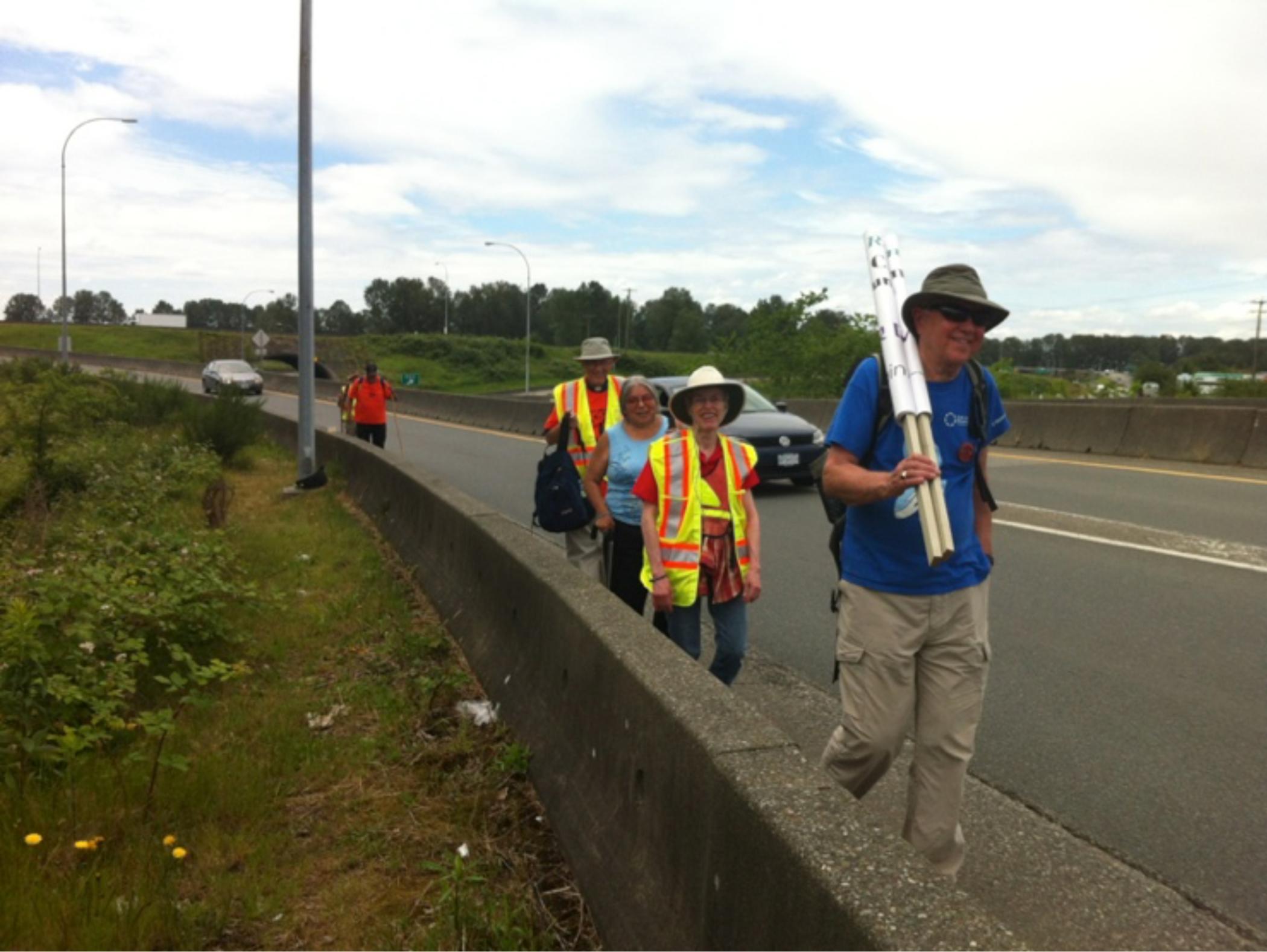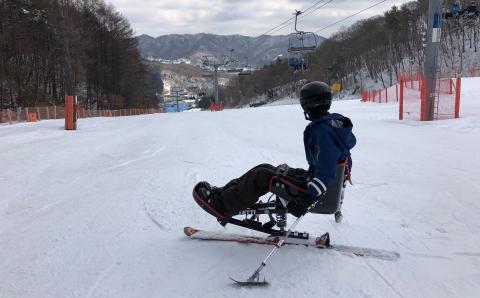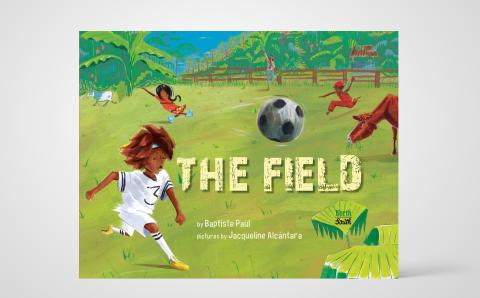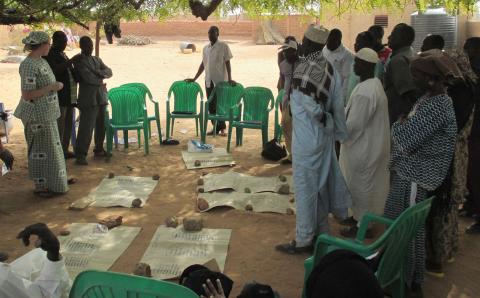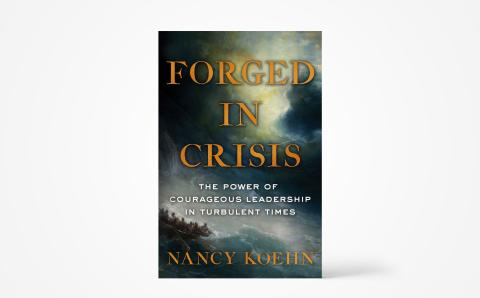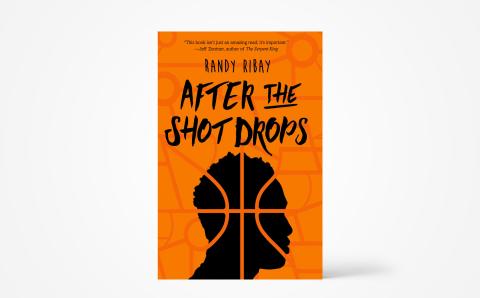Joyce Suh
A friend recently asked, “Why do you care so much for the CRC?” The Christian Reformed Church hasn’t always been the most hospitable place for me. I did not go to a Christian school and was always a bit of an outsider growing up. I have a painful childhood memory of sitting in the pew under the watchful eye of a disapproving elder while the adults took communion at a big table at the front of the church. As a woman with a calling to ministry, I continue to find tables at which I am marginalized or not welcome.
The biggest challenge to my commitment to the CRC came after a brief journey with treatable cancer, when I experienced a season where the things of faith seemed brittle and empty. Scripture seemed to mock. Worship was so at odds with where I was spiritually that it was viscerally difficult to attend Sunday services. God was silent. It was a classic “dark night of the soul.”
This personal journey took place in our ministry context of Cambodia, where most people have deep wounds from genocide, decades of war, and subsequent years of grinding poverty. I came to question not only whether I had practices or a way of living that could carry me through suffering but also whether I had anything to offer others.
No doubt the Reformed tradition has a sound biblical understanding of suffering. But in the face of my own raw struggle and the suffering all around me, it didn’t seem to be enough. How was I to lead others to the living God, the only one who could heal the deep wounds of the soul?
Eventually, I found that others had made sense of my experience and offered hope in a more accessible way. I found help in spiritual practices that were not a part of my upbringing or training. Part of the struggle, though, was “Am I allowed?” Not only did my background lack resources for my journey, but I also felt constrained from looking elsewhere.
I’ve learned that the CRC does not own all the answers. God has scattered good gifts among a number of streams of faith across history. Our own church, like a family, is a place where our deepest values and perspectives are built into us. The CRC has given me the touchstone of grace and a conviction deep in my bones that Christ is the Lord who is making everything new. Sometimes our families do constrain us, and we need to push back against them. But the point of struggle is often also the place of growth. I’ve found that the point of my struggle with the church is also the place of the Lord’s deep, redeeming work in me.
Joyce Suh is SSE Asia regional leader for Resonate Global mission. Together with her husband, Gil Suh, she has served in Cambodia for over nine years.
Darrell Delaney
I remember being introduced to the Reformed tradition at Kuyper College in 2001. Before that, I had never known there was such a thing. At Kuyper I began to hear rich doctrine and teachings that burned in my heart. Finally I was getting the words to articulate the faith I had held so dearly since I was 11 years old. That faith brought me to Grand Rapids and changed my plans from becoming an electrical engineer to a call into full-time ministry.
One of the truths that holds me fast is that God is providential. God cares for all of creation, and I am a part of that creation. I come from a broken family that had its chaotic moments; there were times when I felt out of control. But knowing our sovereign God is watching over me and is helping me through difficult times anchors my heart and soul. This I learned in the Reformed tradition.
Another precious kernel of the Reformed tradition is that we serve a covenant-keeping God. I rest in the fact that God has never broken a promise. This God we serve has made promises all the way back to Genesis and has fulfilled them in Christ—and in me. I have the privilege of participating in the rich blessings of these promises, and I saw them repeated in the baptism of our three children. I am honored to baptize children of other believing parents whose children receive the covenant blessing of God’s care in their lives even before these children are aware of God. This is something I hold dear in the Reformed faith.
One more thing that is wonderful to me is that the Christian Reformed church is interested not only in what God has done but in how God continues to speak and work in our world today. Our contemporary testimony, Our World Belongs to God, gives me hope that our denomination wants to discern together how God might address issues like gambling, divorce and remarriage, racism, and how to care for and interact with LGBTQ people who bear God’s image. Karl Barth once said we must have the Bible in one hand and the newspaper in the other. I take that to mean we as Christians do not duck our heads in the sand but rather serve a God who uses us to respond to shootings, terrorism, famine, poverty, injustice, and tumultuous times. Christians must be the hands and feet of Jesus in the world that he is already working in. We have a role to play in God’s redemption of the world. Although we won’t see it fully in our time, we can be agents of transformation in our own small ways.
The Reformed tradition has given me the language to articulate the hope within me. However, I believe the most important reason the Reformed faith is dear to me is because it is part of God’s sovereign plan, predetermined before the foundations of the Earth, and for his glory. I don’t know about you, but that’s enough for me.
Darrell Delaney is pastor of Madison Square Church’s Square Campus in Grand Rapids, Mich.
Dena Nicolai
I am part of the Christian Reformed church because of Egyptians—more particularly, because of the Egyptian Coptic Orthodox Church.
In my early 20s, I spent a number of years in Egypt. There I had the privilege of friendship with Coptic Orthodox Egyptians and occasional opportunities to worship with them as well. Among the Copts, I witnessed a deep sense of identity—a community alive with its own history, immersed in the stories of its great cloud of witnesses. Although a minority as Christians, with a 2,000-year-old history that includes suffering the Western church can only imagine, these Egyptians had a profound confidence as followers of Jesus.
I also saw a community undergoing revival. While its history includes periods of entrenchment and walling itself off from the wider society, the Coptic Church I experienced was beautifully open to renewal and to the movement of the Holy Spirit.
Above all, it was a community that found its home clearly within the church. It was not only the clergy who spoke about following Christ as inseparable from being part of his church; my friends spoke this way as well. They saw the church as integral to the revelation of Christ’s love, and they believed their existence within it is key to expressing that love for the life of the world.
When I returned to Canada, it was with the conviction that I wanted to better understand my own existence within the church. For I realized that while the Christian Reformed church, into which I was born and raised, had taught me to know and love Jesus, I’d not yet learned to know and love his church. I also realized that the way I would learn this best was not by leaving the CRC but by staying within it. By making that commitment, my eyes have been opened further to the goodness of our denomination (as opposed to just its brokenness), and my gratitude to God for placing me here has grown.
Here in the CRC I have recognized our own cloud of witnesses—from my grandfathers to the saint in the pew next to me to the giants of our tradition who faithfully walk alongside those of us who are newer to the journey. These are people who make room for hard questions while seeking to root us in our own history, urging us to see the path from the Apostles’ Creed to the Heidelberg Catechism and onward as a story of God’s unfolding grace.
Within that unfolding grace, I have witnessed a denomination willing to wrestle with its own brokenness. I have learned from voices among us calling us to repentance and restoration from sins both personal and systemic—racism, classism, sexism, and more. Whether in the catechism classes of the local church or in the denominational offices, I have met people willing to do the often painful work of “working out our salvation with fear and trembling,” challenging us to ask what shape Christ’s love, God’s justice, and the conviction of the Holy Spirit will take in us in our various cultural moments.
I have also found a community committed to be always reforming. We are far from perfect, and (most days) we know it. Our continuing reformation takes place in everything from learning to care for and lament with one another through illness and tragedy and pain, to learning to open ourselves up beyond certain cultural and historical confines. For all of this, and more, I am grateful.
Ultimately, I am part of the Christian Reformed church because within the beautiful diversity of Christ’s body, this is the particular church and community to which God has called me. It is here that I am home.
Dena Nicolai is a chaplain and refugee-support mobilizer and a commissioned pastor with the Christian Reformed churches of British Columbia. She is a member of First CRC Vancouver.
Luke Enders
The thing I love most about the Christian Reformed Church is the liturgical structure of services. In the charismatic church where I grew up, services would begin with an extended period of singing followed by a sermon, and ended with a time of prayer and (usually) more singing. There was no logical progression of themes and ideas, and the songs were assembled more or less randomly—except, perhaps, for an attempt to arrange them so key changes weren’t so abrupt as to disrupt the natural flow from one song to the next.
Upon attending a Christian Reformed church for the first time, I was at first confused by the structure but then enthralled with it. Everything was in place. Everything served a purpose. I remember singing songs throughout my childhood with elements of confession in them, but we never set aside time to truly lament our sin and the brokenness of the world and ask God to make things right. We sang songs that referenced the power of Scripture to transform lives, but we never sung uniform prayers asking God to illuminate his Word to shine upon our hearts and impact us personally in our efforts to join in the redemptive work of Christ in the world. We took wafers and grape juice once a month, but never had a eucharistic service in which we would meditate on the great mystery that is the body and blood of our Savior. Suddenly everything had so much more meaning because of the way it was assembled to emphasize theological truths. There was time to experience each part of the service as an ongoing dialogue between God and God’s people.
This had profound implications for the way I as a church music leader thought about planning services. The beautiful paradox is that the structure of the liturgy actually frees us to do more creative and meaningful things in worship. The service itself becomes an artistic unit created to have an impact rather than just individual songs or parts that stand alone.
Another thing I love about worship in the CRC is our effort to engage with musical styles of various cultures. Recently in my congregation a cellist played a Bach prelude and a Tchaikovsky offertory. After that, the praise team sang a contemporary praise and worship song, then finished the service with a sending tune from South Africa, sung in Xhosa and featuring several different drums. This variety in any given service is more than just fun or entertaining. When we do this we join in the the global song of God’s people. We sing the song of the refugee with the refugees; the song of the persecuted with the persecuted; the song of the children of God with the children of God.
Luke Enders is a student at Calvin College studying music theory and composition. He is on staff at Second Christian Reformed Church in Grand Haven, Mich. In his free time, Luke enjoys playing guitar, hanging out with friends, and singing show tunes.
About the Author
Luke Enders is a student at Calvin College studying music theory and composition. He is on staff at Second Christian Reformed Church in Grand Haven, Mich. In his free time, Luke enjoys playing guitar, hanging out with friends, and singing show tunes.

